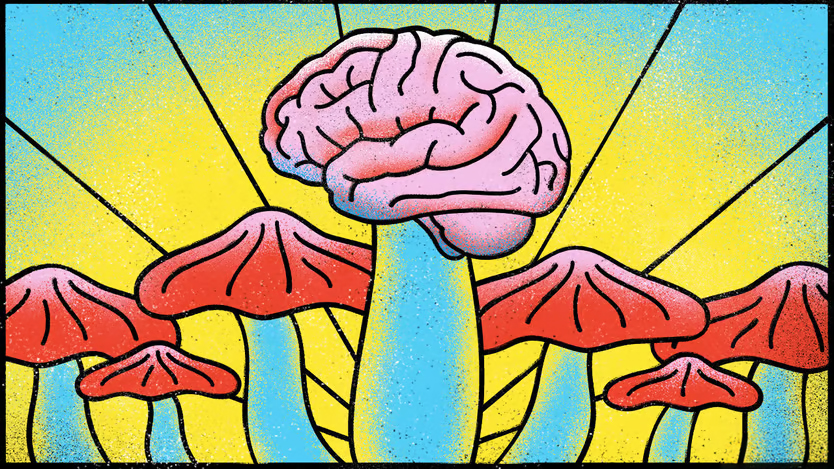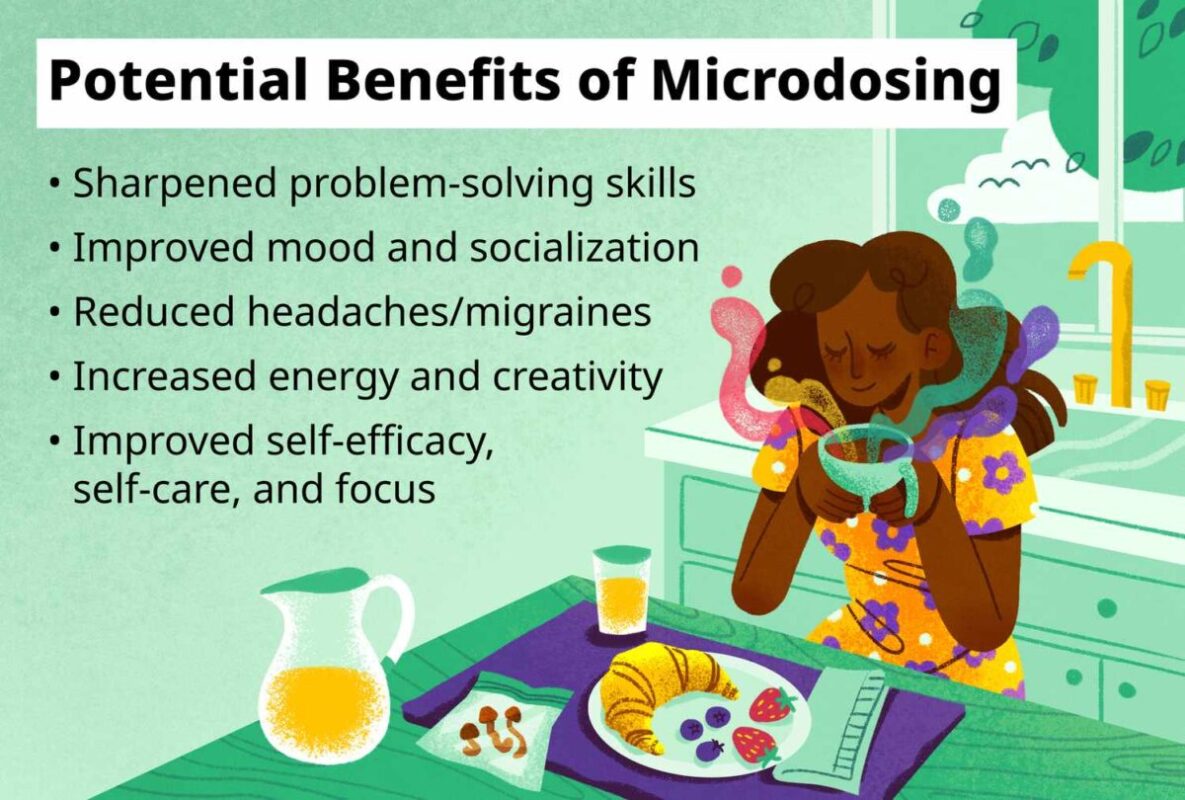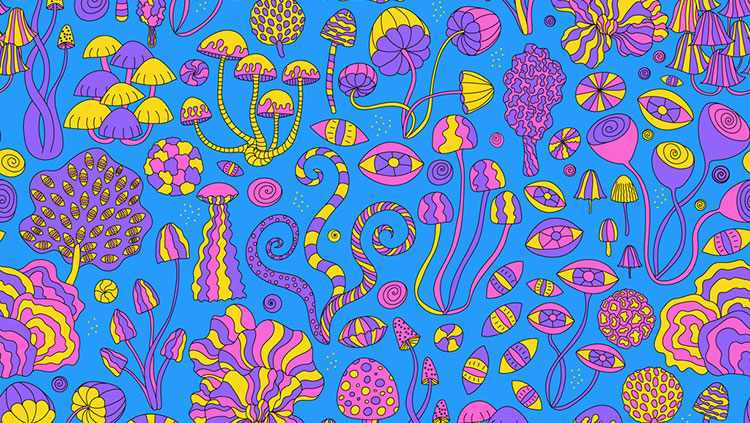Can Magic Mushrooms Cure Depression and Relieve Anxiety?

Magic mushrooms, long regarded as mystical and otherworldly, are stepping into the spotlight of modern science as potential game-changers for mental health. These fungi, particularly Psilocybe cubensis and Amanita muscaria, are becoming central to discussions on innovative treatments for depression and anxiety.
In this post, we’ll dive into the potential healing benefits of magic mushrooms, explore their cultural significance, and look at their emerging role in places like Portland, Oregon, a city that’s leading the charge in the psilocybin movement.
Table of Contents
- A Brief History of Magic Mushrooms in America
- The Science Behind Psilocybin and Anxiety Relief
- How Do Magic Mushrooms Work to Heal the Mind?
- Spotlight on Portland: A Hub for Mushroom Therapy
- Healing Benefits of Psilocybe cubensis and Amanita muscaria
- How to Incorporate Mushroom Therapy into Your Wellness Journey
- Addressing Common Misconceptions About Magic Mushrooms
- Conclusion
A Brief History of Magic Mushrooms in America
Magic mushrooms have been intertwined with human culture for centuries, used by indigenous peoples for spiritual ceremonies and healing rituals. In the 20th century, their popularity surged during the counterculture movement. However, legal restrictions in the 1970s pushed their potential benefits into obscurity.
Fast forward to today: cities like Portland, Oregon are leading a renaissance, decriminalizing psilocybin and fostering research into its therapeutic potential. Portland, with its progressive stance on psychedelics, is becoming a beacon for those seeking alternative paths to mental health and self-discovery.
The Science Behind Psilocybin and Anxiety Relief
Psilocybin, the active compound in Psilocybe cubensis, is a naturally occurring psychedelic that interacts with serotonin receptors in the brain. Unlike conventional antidepressants, which can take weeks to show effects, psilocybin often provides profound relief after just one or two sessions.
Studies show that psilocybin helps “reset” neural pathways, promoting a sense of clarity, connectedness, and emotional release. This makes it a promising tool for addressing treatment-resistant depression and anxiety.
How Do Magic Mushrooms Work to Heal the Mind?
When consumed, psilocybin undergoes a chemical transformation into psilocin, which binds to serotonin receptors. This process leads to:
- Enhanced neural connectivity: Breaking rigid thought patterns and fostering creativity.
- Emotional breakthroughs: Helping individuals confront and process deep-seated traumas.
- Mindful introspection: Encouraging a heightened sense of awareness and self-compassion.
For Amanita muscaria, the mechanism is slightly different. Its active compound, muscimol, interacts with GABA receptors, promoting relaxation, stress relief, and even dream-like states.

Spotlight on Portland: A Hub for Mushroom Therapy
Portland has positioned itself as a trailblazer in the psychedelic movement. With the passing of Measure 109, Oregon became the first state to legalize psilocybin-assisted therapy. This groundbreaking legislation allows trained facilitators to guide individuals through therapeutic sessions in a controlled setting.
The city is home to various wellness centers and workshops that blend traditional healing practices with cutting-edge science, making it a magnet for those seeking natural alternatives to pharmaceuticals.
Healing Benefits of Psilocybe cubensis and Amanita muscaria
Both Psilocybe cubensis and Amanita muscaria offer unique benefits for mental health:
Psilocybe cubensis:
- Eases depression and anxiety: By promoting emotional release and new perspectives.
- Increases mindfulness: Helping users feel more present and connected.
- Improves brain plasticity: Encouraging new neural connections that support resilience.
Amanita muscaria:
- Reduces stress: Through its calming effects on the nervous system.
- Enhances relaxation and sleep: Making it valuable for those with insomnia or chronic stress.
- Promotes spiritual exploration: Offering a dream-like state that many find healing.
How to Incorporate Mushroom Therapy into Your Wellness Journey
For those curious about exploring mushroom therapy, here are some tips:
- Start small: Begin with microdosing to gauge your sensitivity and comfort level.
- Seek professional guidance: Work with licensed therapists or facilitators, especially in cities like Portland where psilocybin therapy is legal.
- Create a safe environment: Choose a comfortable, quiet space free from distractions or stressors.
- Reflect and integrate: Journaling or talking with a therapist post-session can help process insights and emotions.

Addressing Common Misconceptions About Magic Mushrooms
Myth: Magic mushrooms are dangerous.
When used responsibly and under professional guidance, magic mushrooms are considered safe. Their therapeutic potential far outweighs the minimal risks.
Myth: Mushrooms are only for recreational use.
Psilocybin’s primary role in modern therapy is healing and introspection, not recreation.
Myth: Mushroom therapy leads to bad trips.
While challenging experiences can arise, they’re often part of the healing process. Proper preparation and guidance minimize risks.
Conclusion
Magic mushrooms, particularly Psilocybe cubensis and Amanita muscaria, are redefining mental health treatment, offering hope to those battling depression and anxiety. With cities like Portland, Oregon, paving the way for legal and safe access, these natural wonders may soon become a mainstream tool for healing.
Whether you’re seeking relief, clarity, or connection, mushrooms have the potential to unlock new paths to wellbeing. As always, approach this journey with mindfulness, respect, and a willingness to embrace the unknown.

